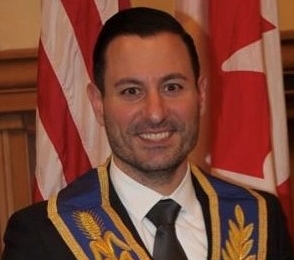
Arda Çilingir
Senior Grand Warden
American Canadian Grand Lodge
Dear reader,
Freemasonry has been an enigmatic organization that has existed for centuries, with its origins dating back to the Middle Ages. It has evolved over time, but its fundamental principles remain the same: brotherhood, morality, and charity. Freemasonry has played an essential role in shaping history, but today, its future is uncertain. The question is, how will freemasonry survive?
Freemasonry is an organization that is built on secrecy, rituals, and traditions. It has been the subject of myths and legends, with some people associating it with conspiracy theories. Its secrecy and exclusivity have often attracted controversy, but it has also been a source of fascination for many. Despite its perceived secrecy, the Freemasons have contributed to society in many ways, including through philanthropy and charity.
The organization has experienced a decline in membership in recent years, leading to questions about its future. One of the reasons for this decline is that the younger generation is not as interested in joining secret societies as their predecessors were. This lack of interest in Freemasonry may be due to a lack of understanding of what the organization stands for or the perception that it is outdated.
However, Freemasonry has shown resilience in the past, adapting to changing times and maintaining its relevance. It has survived wars, political upheavals, and social changes. The organization has evolved over the years, adapting to new ideas and technologies while still holding true to its principles.
Freemasonry’s survival in the future will depend on its ability to adapt to the changing times. Therefore, the Grand Master’s, Most Worshipful Brother Luis Baez-Delgado, approach to digitalize our Grand Lodge is even more important for our success. The organization needs to find ways to appeal to the younger generation while still holding true to its principles. This may involve embracing technology and social media to reach out to potential members. Freemasonry also needs to be more transparent and open about its activities to dispel any misconceptions about the organization. The organization also needs to address some of the issues that have contributed to its decline in membership. These include its exclusivity in some jurisdictions and/or the false perception of such and the perception that it is outdated. Because Freemasonry is inclusive, welcoming members from diverse backgrounds and cultures.
In conclusion, Freemasonry has a rich history and has contributed to society in many ways. Its future may be uncertain, but it has shown resilience in the past and has adapted to changing times. The organization needs to embrace new ideas and technologies while still holding true to its principles to appeal to the younger generation. Freemasonry also needs to be more transparent and inclusive to address some of the issues that have contributed to its decline in membership. If the organization can do these things, there is no reason why Freemasonry cannot survive for many years to come.
Thank you for reading, be safe and well!
